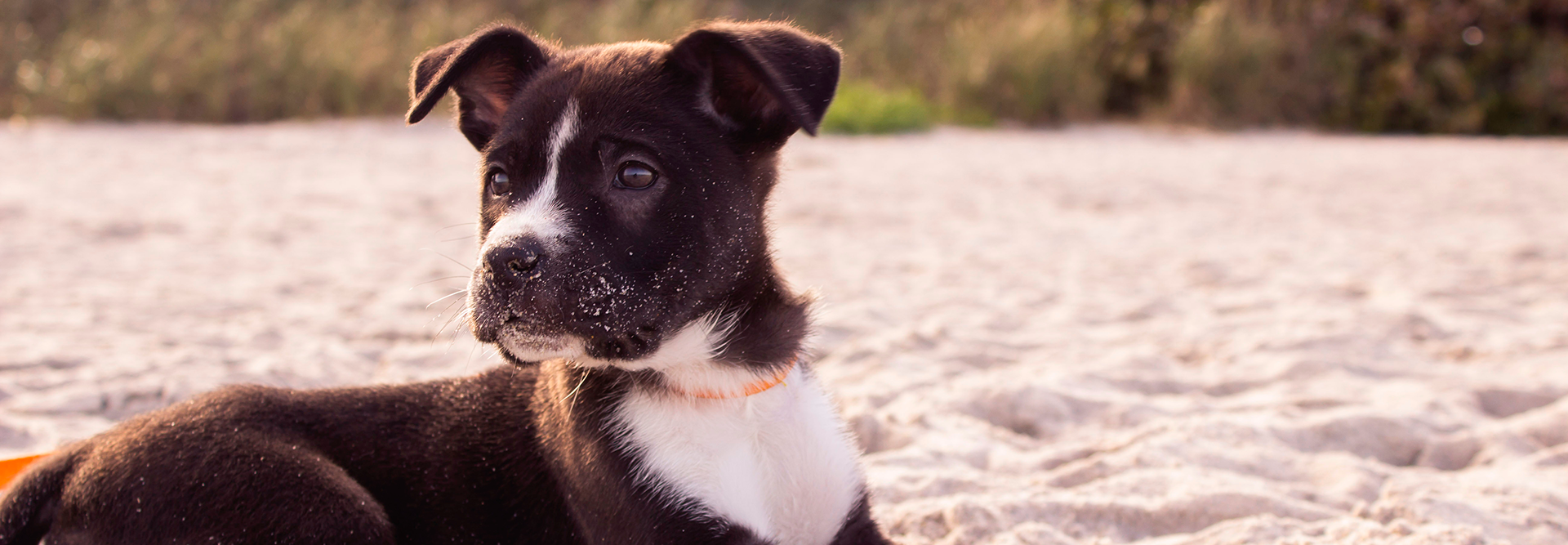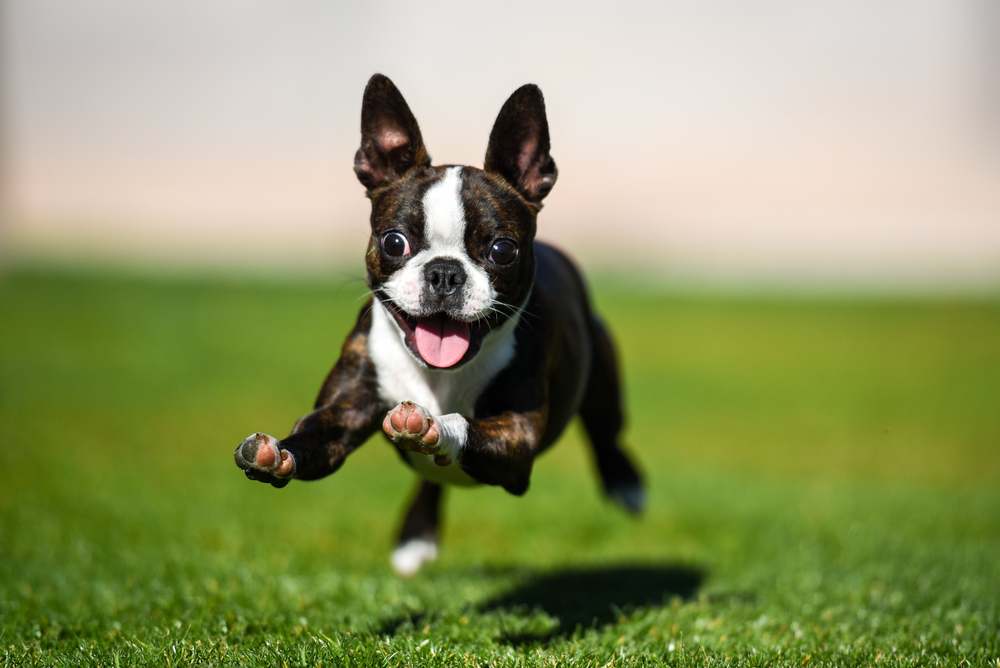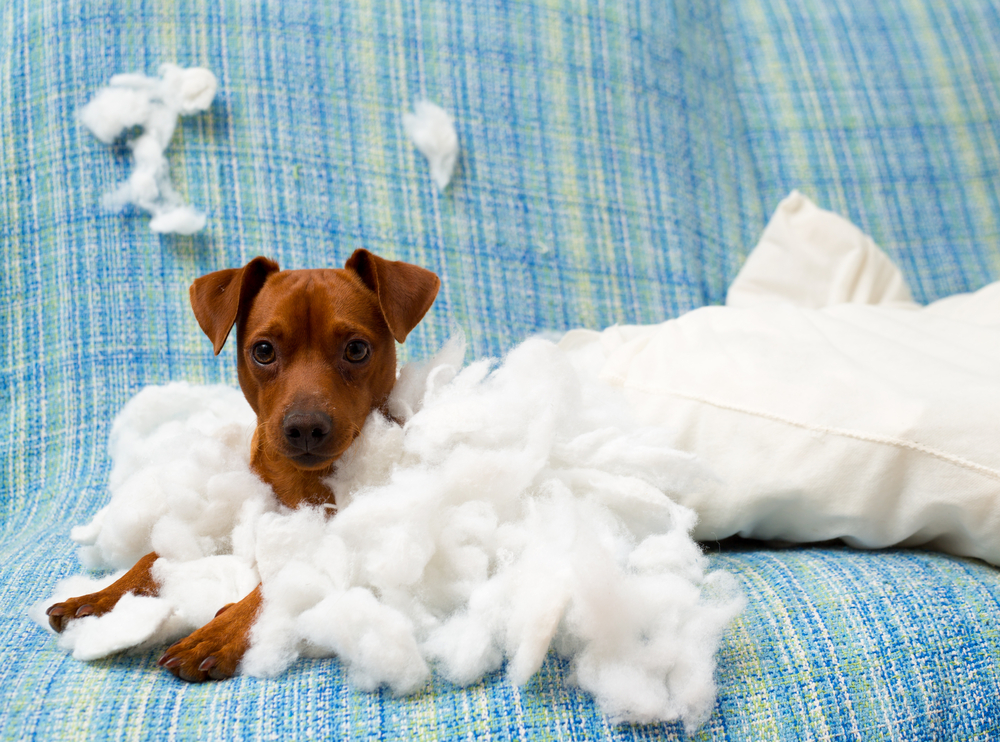
If you recently brought home an adorable puppy, you may notice that your new fur baby sleeps nearly all the time. For many puppy parents, this can be cause for alarm, but they soon learn that their sleeping pup is totally normal and healthy. Then comes the next shocker. The puppy that used to sleep […]
If you recently brought home an adorable puppy, you may notice that your new fur baby sleeps nearly all the time. For many puppy parents, this can be cause for alarm, but they soon learn that their sleeping pup is totally normal and healthy.
Then comes the next shocker. The puppy that used to sleep 19 hours a day is suddenly bouncing off the walls and rarely calms down. This can be a new cause for concern. Why does your puppy have so much energy? Is this normal? Will this last forever?
If these questions have been running through your mind, you’ve come to the right article.
First and foremost, let’s put your mind at ease. Yes, it’s normal that your puppy’s energy will shoot through the roof and stay there for a number of months. And, no, the high energy of your puppy won’t last forever. By 6 months to 1 year, your puppy should calm down significantly all on his own.
This isn’t to suggest that you should allow your puppy to freely behave however his high energy dictates. The 6 months to a year of your puppy’s life is the most formative period. This is when he learns the most from you, and he needs to be thoroughly trained during this time so that he behaves correctly for the rest of his life.
Yes, you have quite a challenge on your hands. You’ll have to train your puppy, which means he’ll have to focus, and yet his high energy could make it difficult for him to control himself.
Petland Florida has put together tips and tricks to help you care for a high energy puppy.

Adult-age dogs tend to be satisfied with two daily outings, which give them the chance to expend their energy. But a common mistake that new puppy parents make is to assume that their puppies only need two outings as well. This isn’t the case. Also, a trip outside to go to the bathroom, which happens frequently with young puppies, doesn’t really count in terms of exercise.
The greatest tip we can offer you is to schedule many trips outside for your puppy to expend energy by playing a game with you. Each trip outside could be as brief as 10 – 15 minutes, but needs to be rigorous. Throw a ball for your puppy to fetch, run with him around the yard, play tug-of-war and really use the outdoor space. If it’s a walk around the block, then walk briskly and be sure to keep moving for the full 15 minutes.
Another trick is to plan these bursts of exercise right before you know you will need your puppy to behave in a calm and relaxed manner. For example, if you have an important phone call coming up or you’re planning on having a friend over, be sure to take your puppy out for 15 minutes of rigorous exercise before your engagement. This way, by the time he comes inside, he’ll be tuckered out and relaxed.
It’s also a good idea to give him exercise time before you engage in a training session with him. Training sessions require your puppy to be calm, focused, and in control of himself so that he can learn whatever you’re trying to teach him. You don’t want your puppy to be so excited to have your attention during a training session that he’s jumping all over you and not paying attention to the lesson at hand. Simply take him outside for a quick 8 minute game of fetch and then dive immediately into the training session.

If you incorporate more daily exercise bursts for your puppy outside, this should dramatically shift his overall indoor energy, helping him to behave in a more calm manner when he’s with you inside. If this is the case, you’ll know that your puppy’s high energy is “constructive.” Meaning, his energy is natural and an indication he’s healthy.
Sometimes, however, a puppy’s high energy isn’t constructive, but rather “destructive.” Symptoms of destructive energy will include damaging your furniture and personal belongings. If you’ve been in the process of training your puppy not to chew on your personal belongings and yet he continues to do this, his behavior should be categorized as destructive.
There are two main underlying reasons for destructive behavior. Once you address those underlying reasons, your puppy’s destructive energy should go away entirely. Let’s take a look at the two kinds of destructive energy.
You’re probably aware that puppies are sensitive to loud noises. If you notice your puppy startles easily at the sound of loud noises, then we recommend that you do what you can to reduce or eliminate those noises. Keep the TV volume low as well as your music. Tell others in your household not to slam doors and cabinets. Try to live more quietly in general until your puppy is an adult and used to the quirks of his environment.
In addition to being sensitive to loud noises, puppies and dogs in general are also sensitive to “energy” and vibrations in particular. Sound, of course, is a vibration. If you live in an apartment building, for example, your puppy might pick up on the “bustling” energy of your neighbors as they’re coming and going. Though there isn’t much you can do about the normal rhythm of where you live, you can offer your puppy extra TLC to help him adjust.
Have you been coming home after long hours to discover your puppy has chewed a hole in your couch or left a stinky present under your bed? These signs of destructive energy could be caused by separation anxiety.
We would like to take a moment to mention that it’s really important that you do not scold or “discipline” your puppy for doing this kind of damage while you were gone. If you come home, see a mess, and scold your puppy, your puppy will actually not understand why you are scolding him. He doesn’t have the mental intelligence to connect that you are mad about a behavior he did an hour ago. A full-grown dog who knows better than to go into the kitchen trash, however, will be smart enough to know why you’re mad, but that’s because he “knows better” and has a sense of shame.
One of the best ways to prevent separation anxiety is to give your puppy at least 15 minutes of your undivided attention before you leave the house. Ideally, you should take him outside for rigorous exercise, like a game of fetch, for 15 – 30 minutes. This will tire him out so that when you’re away from home, he’ll have an easier time sleeping and taking it easy.
In addition to giving your puppy exercise outside, it’s a good idea to cuddle with him, give him a treat, and otherwise spend quality time with him before you leave. New puppy parents who have had difficulty with their puppy destroying things due to separation anxiety have reported that by spending quality time with their pup before they leave, their puppy’s behavior has greatly improved.
It’s also a good idea to keep in mind that the specific breed of your puppy will determine how much daily exercise he needs. Some dog breeds are naturally high energy while others are naturally mellow. Be sure to research your puppy breed in order to meet his daily exercise requirements. And if you’re reading this article because you’re thinking about getting a puppy, we recommend that you pick a dog breed that will match your own natural energy level!
Want hands-on help figuring out which dog breed is right for you? Stop by one of our Petland Florida locations and speak with our knowledgeable pet counselors. We love matching people with the best puppies for them!